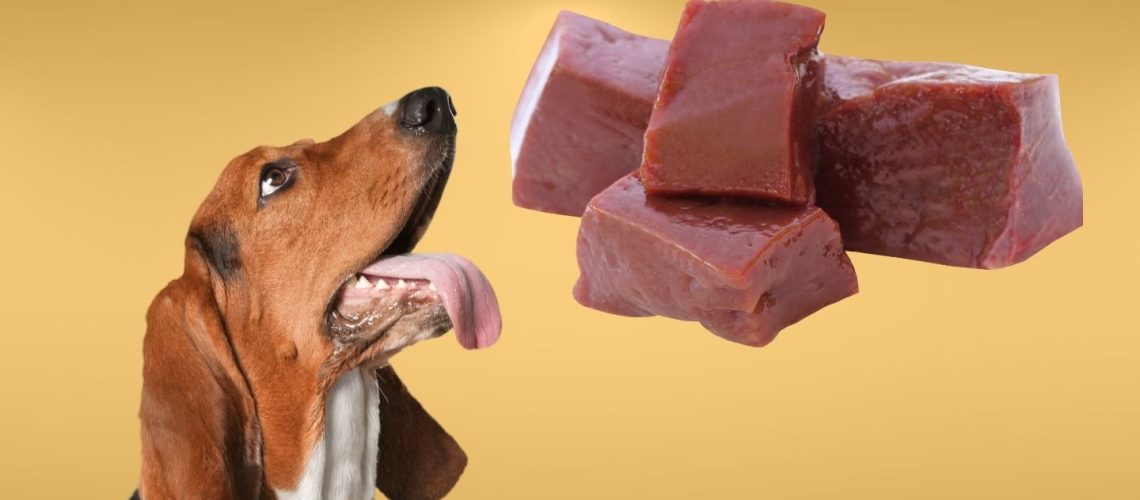Yes, dogs can eat liver. In fact, liver can be a nutritious and tasty treat for dogs. However, it is important to feed liver to dogs in moderation, as it is high in vitamin A and can cause health problems if fed in large amounts.
Nutritional Benefits of Liver for Dogs
High-Quality Protein Source
Liver is a good source of protein, which is essential for maintaining strong muscles and providing energy for dogs.
Rich in Vitamins and Minerals
Liver is high in several vitamins and minerals that are beneficial for dogs, including:
Vitamin A
This vitamin supports healthy vision, skin, and immune system function.
Vitamin B12
Vitamin B12 is important for the formation of red blood cells and maintaining a healthy nervous system.
Copper
Copper aids in the formation of connective tissue, bone, and melanin (the pigment that gives color to a dog's coat).
Iron
Iron is essential for the production of hemoglobin, which helps transport oxygen throughout the body.
Niacin
Niacin helps support healthy skin, coat, and energy metabolism in dogs.
Zinc
Zinc plays a vital role in supporting a dog's immune system and maintaining healthy skin and coat.
Benefits for Skin and Coat
The vitamins and minerals in liver, particularly vitamin A and zinc, contribute to a healthy, shiny coat and supple skin.
Supports Muscle and Bone Health
The high-quality protein found in liver helps build strong muscles, while minerals like copper and zinc contribute to healthy bone development.
Boosts Immune System Function
Liver contains nutrients that support a dog's immune system, helping them stay healthy and fight off infections.
Potential Risks of Feeding Liver to Dogs
Vitamin A Toxicity
While liver is high in vitamin A, consuming too much vitamin A can lead to health problems in dogs. Symptoms of vitamin A toxicity can include bone abnormalities, liver damage, and decreased appetite.
Possible Allergic Reactions
Some dogs may develop an allergy to liver, causing symptoms such as itching, swelling, or gastrointestinal issues.
Sourcing High-Quality Liver
When feeding liver to your dog, it is important to make sure you are using a high-quality source, as lower-quality livers may contain harmful bacteria or toxins.
How Much Liver Should You Feed Your Dog?
Determining the Appropriate Serving Size
The amount of liver you should feed your dog will depend on their size and weight, as well as their overall health and dietary needs. As a general rule of thumb, it is recommended to feed dogs no more than one tablespoon of liver per 10 pounds of body weight per day.
Frequency of Feeding Liver
Liver should be fed as an occasional treat or supplement, rather than a daily staple in your dog's diet.
Adjusting for Dog Size and Weight
Smaller dogs will require less liver, while larger dogs can handle more. For example, a 50-pound dog should not eat more than five tablespoons of liver per day.
Different Forms of Liver to Feed Your Dog
There are several ways to feed liver to your dog, including:
Raw Liver
Some dogs may enjoy eating raw liver, but it's important to ensure it is from a high-quality source to reduce the risk of harmful bacteria.
Cooked Liver
Cooking liver can make it more palatable and easier to digest for some dogs. Be sure to avoid using any oil or seasoning when preparing cooked liver.
Freeze-Dried Liver
Freeze-dried liver is a convenient option for those who prefer not to handle raw meat. It can be easily broken into smaller pieces and used as a treat or food topper.
Liver Supplements
For dogs who don't enjoy the taste of liver or those who have difficulty digesting it, liver supplements can provide the same nutritional benefits without the risk of feeding too much liver.
Tips for Introducing Liver to Your Dog's Diet
Gradual Introduction
Introduce liver slowly into your dog's diet, starting with small amounts and gradually increasing the quantity over time.
Monitoring Your Dog's Reaction
Keep an eye on your dog after feeding liver to watch for any signs of intolerance or allergic reactions.
Consult with Your Veterinarian
Before making any major changes to your dog's diet, it's always a good idea to consult with your veterinarian to ensure it aligns with your dog's specific needs.
Conclusion
In conclusion, dogs can eat liver and it can provide numerous health benefits. However, it is important to feed liver to dogs in moderation, as it is high in vitamin A and can cause health problems if fed in large amounts. By following the recommended serving size and introducing liver gradually into your dog's diet, you can ensure that your dog gets the nutritional benefits of liver without risking any potential health problems.











